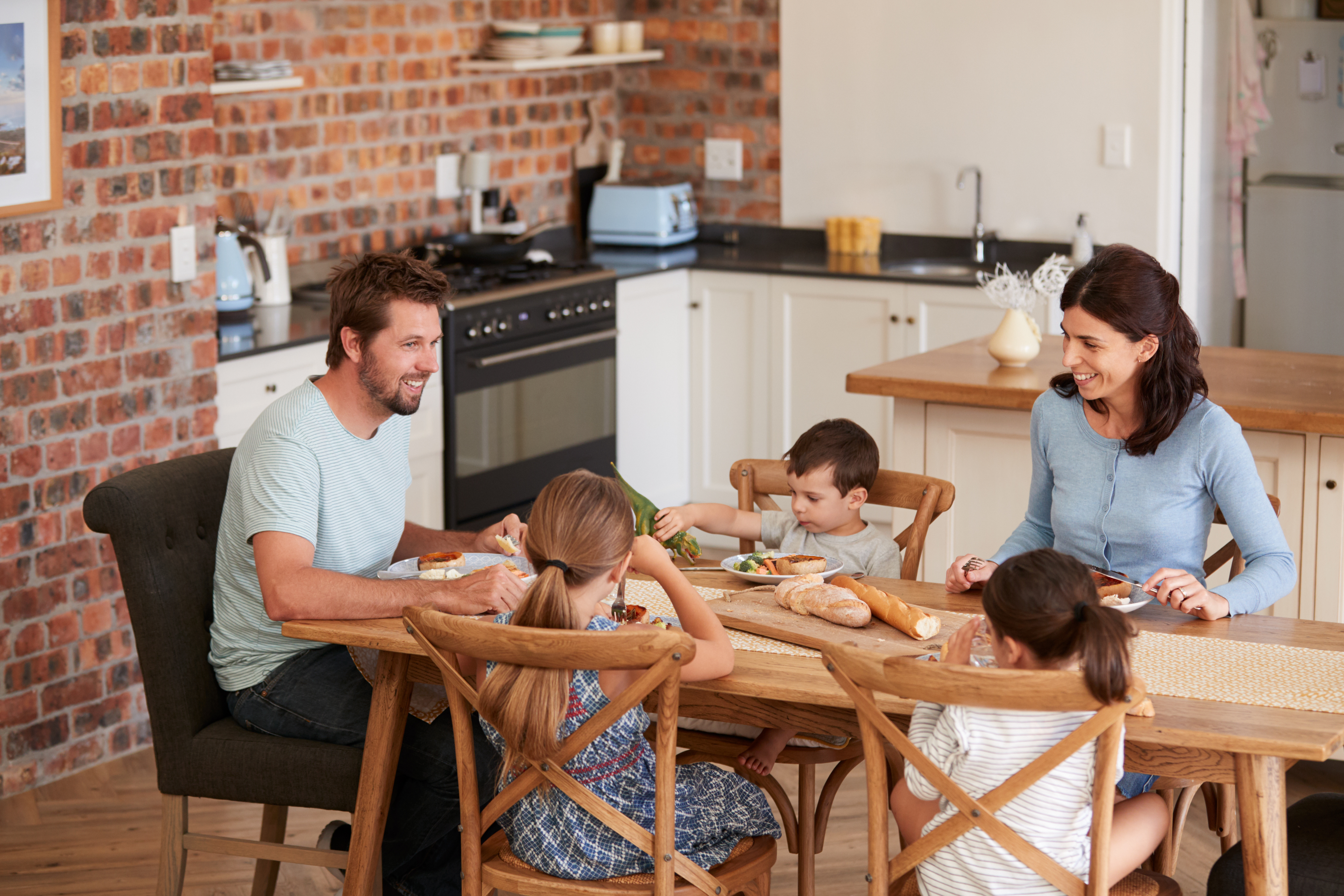by Jim Edward
In today’s “my kids are busier than your kids” world, skipping out on family dinner is easy. In fact, sometimes it’s just unavoidable: Baseball practice at 5:30. Dance at 6:00. Piano lessons at 7:00. Ring a bell? In many ways, we’ve become an eating-on-the-run society.
However, it also seems like we’ve hit a tipping point in which we are seeing a very real consequence of what’s become commonplace in our day to day. More and more parents are now realizing the importance of shared family time at the dinner table. Often, this is the only time when all family members are all together in one place.
While “family dinner” can seem tiring at the end of a long day, that shared time isn’t always easy to come by.
When a family sits down together, it helps them handle the stressors of daily life and the hassles of day-to-day existence. Eating together tends to promote more sensible eating habits, which in turn helps family members manage their weight more easily.
Following are tips from Stanford Children’s Health on family dining:
Expectations
The purpose of a family dinner may differ from family to family. In one family, good table manners might be the most important thing parents want to teach; in another, it might be communicating with one another, learning how to listen and learning to respect each other. Children need to learn a little bit at a time, experts say. If dinnertime is an interesting time of day for your child, he is going to learn how to sit, and say, “How was your day?” and “What was the best thing that happened to you today?”
Communication
Dinnertime is a time of respite from the hustle-bustle of everyday life. Your family can review the day that’s passed and plan for the day that’s coming.
Teach by example
Divide tasks so Mom alone is not responsible for preparing food, serving and washing dishes. The chores and joys of feeding, nurturing and cleaning up should be shared.
Don’t discuss things that would embarrass or humiliate family members. Certain subjects children may want to discuss might require more compassion or individualized listening. Otherwise, there are no taboo topics.
Build self-esteem
Dinner is a perfect opportunity to build self-esteem in children. By listening to what children have to say, you are saying, “I value what you do; I respect who you are and what you’re doing; what you do is important to me.”
Mealtime can be looked at as an opportunity or as a chore. If it’s viewed as an opportunity, then all sorts of possibilities are created; if it’s viewed as a chore, then the possibilities don’t exist.
Seating
Parents should let children choose their own seats. If they fight over a favorite seat, help settle the dispute peacefully.
Family dynamics
One parent may feed the kids early with the intention of protecting the other parent from a raucous meal. But this can actually isolate the absent parent from family dynamics and create distance. Certain scheduling conflicts cannot be avoided, but carving out family meal time on a regular basis enhances family dynamics.








Leave A Comment